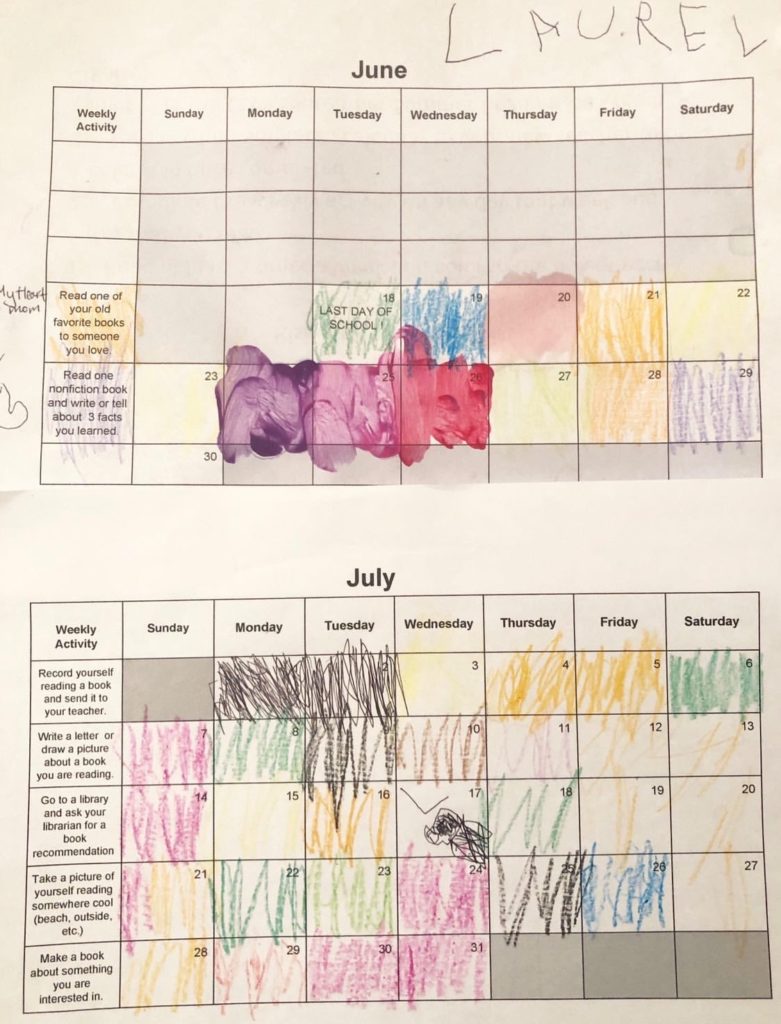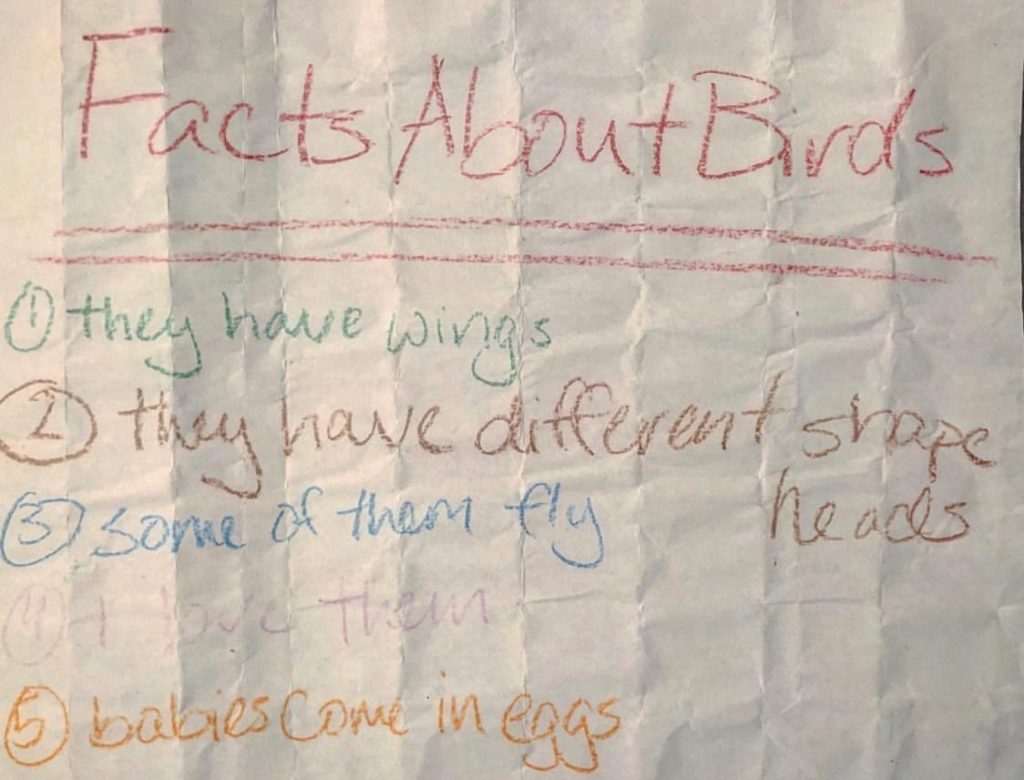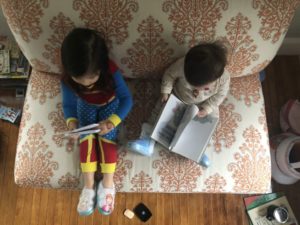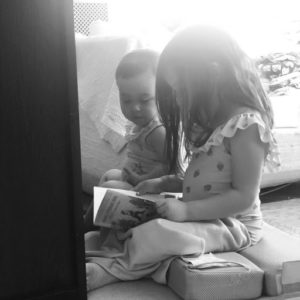Remote or hybrid learning has become a critical means for teachers to continue building sustainable educational experiences for young learners. At Conservatory Lab, teachers continue to explore a blend of virtual and more traditional methods of instruction to keep students’ development on track, but teachers aren’t alone in this pursuit. With many students taking their classwork from the classroom to more personal spaces, families-turned-educators have stepped up to the plate to ensure their students continue to be successful in school.
What has emerged from this shift in learning are strategies that families around the country have become familiar with—strategies that generate accountability and learning at home. One Conservatory Lab family member created a calendar with fun tasks for their students to engage in outside of virtual classes.

Another student’s family introduced creative ways to strengthen their child’s reading comprehension,
“I noticed that my child was suffering in their reading comprehension so I began assigning additional readings outside of class, requiring key details and a mini book report summary about the book my child chose. This helped me gauge whether they were absorbing their studies so that I could have more specific conversations and questions for their teacher,” said Angela whose three boys attend Conservatory Lab.
We thought it would be helpful to share a selection of strategies that may help other students improve across subject areas:
- Create designated ‘learning spaces’ for each student. Ensure those spaces are free from distractions to encourage learning.
- Encourage the application of assignments outside of class by reading new books or practicing math during everyday activities
- Fun extracurriculars can be strong motivators, balance skills based progress on benchmarks with time to focus on projects that interest students.
- Communicating with teachers is key to understanding student’s progress. Students reflect on their progress with teachers, and keeping in touch is important.
Angela, continued, “It’s tough because while students are at home, you can’t watch over them and say ‘hey that’s wrong, fix it’…You have to learn how to help your child maintain their independence and accountability for their work.” The hardest part, she shared, “Is to watch my child turn in incorrect assignments, but I can’t do anything that could impact their teacher having an accurate report that will help us gain a better understanding of potential areas of improvement.”
Strategies that families can use to help students keep learning at their own pace:
- Understand your student’s learning, social skills, or distinct patterns in how they think and perform. What does your student enjoy naturally?
- Trust your student to “do their own thing” but pay attention to how they work best. Learning styles are not one size fits all.
Families have also found innovative ways to balance socialization and learning. “We try to encourage our child to log on early to chat with friends or set up extra virtual meetings so they can build relationships with classmates or old friends,” described Dewayne, who has two children at the school.
Engaging with local businesses and stores is another form of socialization for students. According to Christina, “Our two girls love getting “new” books from the Boston Public Library. Even though we can’t go in to browse the shelves at the Codman Square branch anymore, the kids request themes.” Recent themes included farm animals and rocket ships– a new interest after learning about Ellen Ochoa for Hispanic Heritage Month. “When we get the notification that our books are ready, we swing by for a convenient contact-free pick-up.”
And for families with multiple students, the struggle to meet each student’s needs has never been more difficult. “We teach our kids to rely on one another no matter what grade they both might be in or differences on subject matter. When one was learning math, their sibling was right there learning with them. Our new philosophy is ‘what you don’t have your brother or sister has.’ I want to encourage my kids to rely on each other for additional support-building, support I may not be able to give them,” said Angela.
While we realize this has been a time of great transition for everyone—teachers, families, and especially our students—we want to applaud the efforts everyone is making. Teachers and families have become masterful virtual educators and our students continue to excel, despite the challenges they have faced. We are proud of our Conservatory Lab community and want to encourage the community to continue helping each other by sharing your tools for success
Have a virtual learning strategy you want to share? Email nwashington@



